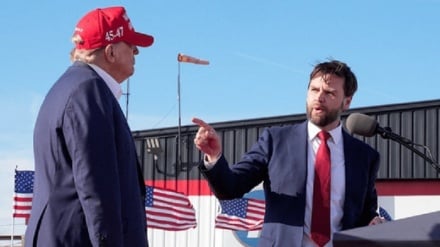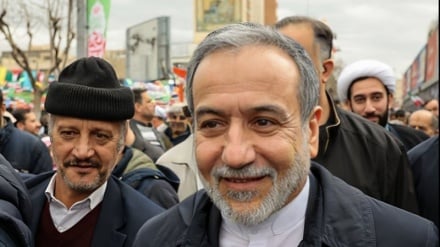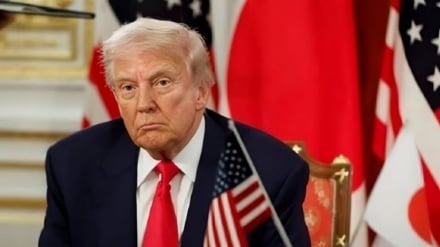Resistance to US intervention in Sri Lanka
Sri Lanka is a participant in the Maritime Belt and Silk Road Initiative (BRI), China’s extensive network of ports and maritime facilities connecting the Pacific and Indian Oceans.
The Indian Ocean is one of the most contested regions in the world today. China, the US and India, and also Japan, Saudi Arabia and other rich and powerful states, are struggling for influence over Sri Lanka, which is in the geographic heart of the Indian Ocean. The sea lanes of the Indian Ocean are considered to be the busiest in the world, with more than 80% of global seaborne oil trade estimated to be passing through them.
Here we present you an interesting article appeared on Asia Times website, by university Professor, Dr. Asoka Bandarage, titled, “Resistance to US intervention in Sri Lanka”.
Sri Lanka is a participant in the Maritime Belt and Silk Road Initiative (BRI), China’s extensive network of ports and maritime facilities connecting the Pacific and Indian Oceans. In January 2017, the Sri Lankan government granted China a 99-year lease of Hambantota Port in exchange for US$1.1 billion in debt relief. China is also developing other projects in Sri Lanka, such as the $1.4 billion “Port City” in Colombo on land reclaimed from the Indian Ocean.
In a bid to curtail Chinese expansion across Asia, the US is turning strategically located Sri Lanka into a “military logistics hub” and the center of the so-called “Free and Open Indo-Pacific Region Policy,” – which is actually a cover for American hegemony. Moreover, the US-Japan-Australia-India alliance is seeking to involve Sri Lanka in taking on the Chinese challenge.
Control of Sri Lanka has become more urgent for the US since the International Court of Justice (ICJ) ruled in February that US occupation of the Indian Ocean Chagos Islands is illegal and the islands be handed back to Mauritius “as rapidly as possible.” The Diego Garcia military base was established after Britain, which had occupied Chagos, forcibly removed its inhabitants between 1968 and 1973. Diego Garcia is one of America’s most important and secretive military bases. It has been central in launching invasions in Iraq and Afghanistan and flying missions across Asia, including over the South China Sea. If the islands go back to Mauritius and the Chagossians who sued for their right to return are allowed back, then the US will require an alternative base. That could be Sri Lanka.
In January 2015, a US-backed Sri Lankan government replaced the former Mahinda Rajapaksa government that defeated the Liberation Tigers of Tamil Eelam (LTTE). Soon thereafter, the new government and the United States co-sponsored a United Nations Human Rights Council Resolution in Geneva. Calling for accountability for alleged war crimes and missing persons in the final stage of the war against the LTTE, the UNHRC Resolution pressured the Sri Lankan government to make significant changes, including the dismissal and imprisonment of its intelligence officers and army personnel. These measures weakened Sri Lankan intelligence and security, paving the way to the Easter Sunday carnage by Islamist terrorists.
The Easter attacks are now being used to justify the acceleration of US intervention in Sri Lanka, which had already been increasing over the last few years. However, the three main bilateral agreements the US has deployed to assert its political, economic and military control over Sri Lanka – Millennium Challenge Corporation (MCC), Acquisition and Cross Servicing Agreement (ACSA) and Status of Forces Agreement (SOFA) – are facing massive local opposition.
The Millennium Challenge Corporation (MCC), a foreign-aid agency established by the US Congress, is ready to sign a “compact” with Sri Lanka to facilitate private-sector investment and economic growth. Based on a “Constraints Analysis” completed by the Center for International Development at Harvard University, the compact identifies three constraints to growth in Sri Lanka: policy uncertainty, poor transportation and logistics, and inadequate access to land, especially “the difficulty of the private sector in accessing state land for commercial purposes.”
The MCC Compact would undertake transportation and land management in return for a grant of $480 million to Sri Lanka. Proponents claim that the distribution of a million deeds granting outright ownership is a poverty-alleviation measure. However, critics such as MONLAR (Movement for Land and Agricultural Reform) see a setup for a massive land grab, displacement and pauperization: “… large multinational companies have made small-time farmers bankrupt and are buying off their agricultural land…. By giving desperate people an asset that they can sell, the government has ensured that these lands will be sold off.”
The Foreign Ministry is attempting to hand over the task of drawing land survey maps and creating a streamlined database of 3.6 million parcels of state-owned land to Trimble Inc, a US-based geological information system and mapping firm, for 15 years. Survey Department trade unions have gone on strike opposing this move, which local surveyors see as a threat to their employment and national security and a wasteful expenditure.
Neither the MCC Agreement nor the new Sri Lanka Physical Plan (2018-2050) associated with the compact have yet been made public. The State Land (Special Provisions) Bill too has not been submitted to cabinet approval because of its connection to the MCC. This lack of transparency has raised grave concerns among the public and the Sri Lankan diaspora regarding US control over vital resources of land and transportation and its impact on the local economy, the environment, and social and cultural norms.
A projected Physical Spatial Structure Map for 2050, details of which have been leaked to the public, has sparked fears that the “economic corridor” proposed by the compact for the Trincomalee-Colombo highway could splinter Sri Lanka into two separate entities under the control of the United States, resulting in the loss of sovereignty, unity and territorial integrity.
The US-backed Sri Lankan Prime Minister, Ranil Wickramasinghe, has reportedly signed the MCC Agreement, but President Maithripala Sirisena has refused to do so. The US ambassador in Sri Lanka, Alaina Teplitz, has written to the president urging him to sign. The US seems to be in a hurry to seal the deal before a new government that is less friendly toward Washington comes into office by 2020.
The previous Sri Lankan government signed an Acquisition and Cross Services Agreement (ACSA) with the United States, without parliamentary approval, during its armed conflict with the LTTE. The US Defense Department and the Sri Lankan Ministry of Defense entered another ACSA on August 4, 2017. While the 2007 ACSA was valid only for seven years, the new agreement is open-ended. While the 2007 ACSA permitted US military vessels to enter Sri Lanka ports on a one-off’ basis, the 2017 ACSA again appears to be open-ended. Whereas the 2007 ACSA was only eight pages, the 2017 ACSA is said to be 83 pages long with more than 50 annexes listing US commands and military establishments allowed to use Sri Lanka’s airports and seaports.
The 2017 agreement is designed to facilitate reciprocal logistic support between the US and Sri Lanka for use “during combined exercises, training, deployments, port calls, operations, or other cooperative efforts, or for unforeseen circumstances or exigencies in which one of the parties may have a need for logistic support, supplies and services.”
Reportedly, it allows every security or military apparatus in the US access to Sri Lanka, making the country the main supply hub for US armed forces in the Indo-Pacific region.
The Sri Lankan cabinet approved ACSA 2017 hastily without careful examination or discussion under pressure from US-backed Sri Lankan officials. ACSA was approved without thorough study by armed forces commanders and officials who have serious reservations over some of its provisions. ACSA was not presented to Parliament.
The signing of ACSA was shrouded in secrecy without media coverage or publicity, reportedly as directed by Atul Keshap, US ambassador in Sri Lanka at the time. The renewed ACSA has not been made public despite requests for transparency by opposition political parties, the president of the Bar Association of Sri Lanka (BASL), and others.
The Sri Lankan government signed a Status of Forces Agreement (SOFA) with the United States in 1995 during the armed conflict to facilitate training of Sri Lankan security forces by US officials.
The United States has requested that the Sri Lankan government accept a new SOFA expanding the 1995 SOFA by including an Annex B. Unlike the already signed ACSA, the new SOFA will not be limited to purchase of goods and services and will include rules governing US military personnel in Sri Lanka.
The Sunday Times published the draft SOFA on June 30, revealing that it would provide full diplomatic immunity not only to any member of the US armed forces, but also to contractors and employees of US armed forces operating in Sri Lanka. US army personnel could be present in any part of Sri Lanka without any restrictions and carry arms in uniform. They could enter and leave Sri Lanka with US identification, in other words, without passports or visas.
They would be above Sri Lankan law and not be liable for criminal offenses in Sri Lanka. The US Department of Defense may not be subject to any local taxes for any material, supplies, equipment and services (including construction) they contract in Sri Lanka. The US Department of Defense would also be allowed to operate its own telecommunication systems in Sri Lanka without cost to the US government.
The SOFA has been temporarily stayed by the Sri Lankan president. With ACSA already signed and SOFA pending, US security companies, notably Sallyport, are already running ads to recruit US citizens with “active top secret clearance” to work for US defense operations in Sri Lanka.
Outrage over the blatant violation of Sri Lanka’s independence and sovereignty and opposition to the SOFA as well as the ACSA and MCC Compact are mounting across different strata and sectors of Sri Lanka society. The chief of defense staff, the Chamber of Commerce, and the president of the BASL have warned of the dangers SOFA poses to national interests.
The political party Sri Lanka Podujana Peramuna and the newly formed STOP USA Campaign are organizing media briefings and mass rallies calling for transparency and accountability in making international agreements.
In response to the rising opposition, the US has “rebranded” SOFA as a Visiting Forces Agreement (VFA). However, as Sri Lankan President’s Counsel M M Zuhair warns, “With SOFA in hand, the Americans do not require a military ‘base’ in Sri Lanka … because the whole island will be a US-controlled super-state operating above the Sri Lankan laws….”
While the US expects future Sri Lankan governments to respect international obligations taken on by the current US-backed government, the very legitimacy of the MCC Compact, ACSA and SOFA is widely being questioned in Sri Lanka. As eminent analyst Neville Ladduwahetty argues the Supreme Court must rule on procedures to be followed when agreeing to bilateral treaties determining if the “procedures adopted are consistent or not with the hard core principles of the constitution” regardless of the contents or with whom the agreements are made. Laduwahetty clearly states that all agreements must have the consent of the Parliament: “Any agreement/treaty signed in the name of the people by the executive, ie the president or the cabinet, without the consent of Parliament amounts to a violation of the sovereignty of the people.… Such agreements/treaties have no legitimacy vis-a-vis international law as determined by the Vienna Convention on Law of Treaties of 1969…..”
Notwithstanding the violation of people’s rights and illegitimacy of the proposed amendments, Sri Lankans recognize the importance of maintaining good relationships with the US, China, India and other countries. However, they do not wish to sacrifice the principles of sovereignty, democracy and the rule of law in doing so.
SS/EA


